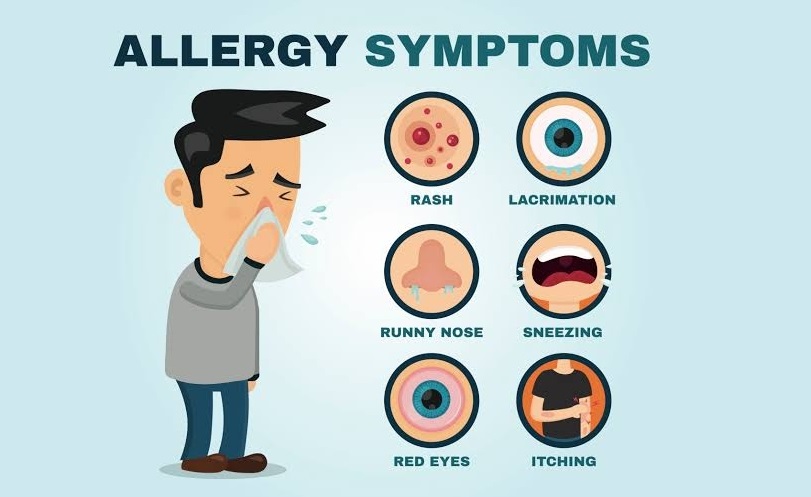Seasonal allergies, often referred to as hay fever or allergic rhinitis, occur during specific seasons and can impact your health and well-being at any time of the year, depending on your location. Common allergens like dust, pollen, air pollution, and mould can trigger allergy symptoms. Although seasonal allergies are typically less frequent in winters, they can persist throughout the year. Different plants release pollen at various times, which may cause symptoms in multiple seasons based on your triggers and location. Additionally, indoor allergens like pet dander or mould can also provoke reactions. Continue reading to discover the symptoms and effective ways to manage seasonal allergies.
Symptoms of Seasonal Allergies
Seasonal allergies result in the following symptoms:
- Cough
- Runny nose and congestion
- Itchy nose or throat
- Sneezing
- Watery, itchy, and/ or red eyes
- Mucus that runs down the back of your throat (postnasal drip)
- Tiredness, usually because of poor sleep due to nasal congestion
- Swollen and bruised-looking area under the eyes
Tips to Manage Seasonal Allergies
Here are some tips to deal with your seasonal allergies.
- Avoid Allergy Triggers
The best way to manage your seasonal allergies is to minimise exposure to allergens that trigger your symptoms. Some steps you can take to do this include:
- Avoid activities like lawn mowing and gardening that can stir up allergens.
- Stay indoors on windy, dry days; the most suitable time to go outdoors is after rainfall, which clears pollen from the air.
- After being outdoors, change your clothes and take a shower to remove pollen from your skin and hair.
- Consider wearing a face mask when doing outdoor chores.
- Refrain from hanging laundry outside, as pollen can cling to sheets and towels.
- Keep Indoor Air Clean
Keeping indoor air free from allergens can prevent your seasonal allergies from being triggered. Here’s how to do this:
- Use air conditioning in both your home and car.
- Use a dehumidifier to keep indoor air dry.
- For homes with forced air heating or air conditioning, install high-efficiency filters and maintain them regularly.
- Frequently clean floors using a vacuum cleaner equipped with a high efficiency particulate air (HEPA) filter.
- Consider a portable HEPA filter in your bedroom.
- Take Over-the-counter Medicines
Many over-the-counter (OTC) medications can provide relief from allergy symptoms. These include:
- Oral Antihistamines: Medications like cetirizine, fexofenadine, and loratadine help alleviate the symptoms of seasonal allergies like sneezing, runny nose, itching, and watery eyes. Cetirizine tablet is one of the most popular and effective oral antihistamines that provides quick relief from bothersome symptoms. Considering its effectiveness and safety, the cetirizine tablet price delivers great value.
- Corticosteroid Nasal Sprays: Fluticasone, triamcinolone, and budesonide are examples of effective corticosteroid nasal sprays that target nasal symptoms. Do consult your healthcare provider for long-term use.
- Cromolyn Sodium Nasal Spray: This nasal spray blocks immune responses causing allergy symptoms and works best when used before allergen exposure, requiring 4-6 applications daily.
- Oral Decongestants: Pseudoephedrine offers temporary nasal congestion relief. Some allergy meds combine decongestants with antihistamines. Always consult your healthcare provider before using decongestants for allergies.
- Consult a Doctor
For many individuals, avoiding allergens and using nonprescription medications can effectively manage symptoms. However, if your seasonal allergies persist, there are additional treatments available. Your healthcare provider may suggest skin or blood tests to identify the specific allergens causing your symptoms. This testing helps tailor a treatment plan that best suits your needs. Allergy shots, or allergen immunotherapy, might be recommended for some people. This treatment involves regular injections with small amounts of allergens to gradually reduce the immune system’s response. In certain cases, treatment can also be administered as tablets placed under the tongue.
Managing seasonal allergies requires a combination of strategies, including avoiding triggers, keeping indoor air clean, and using appropriate medications. Over-the-counter medicines like cetirizine tablets can provide effective relief from symptoms, making it easier to cope with the discomfort of allergies. However, if symptoms persist or worsen, consulting a healthcare provider for personalised advice and treatment options, such as allergy testing or immunotherapy, is essential. By taking proactive steps, you can significantly reduce the impact of seasonal allergies on your daily life and overall well-being.
